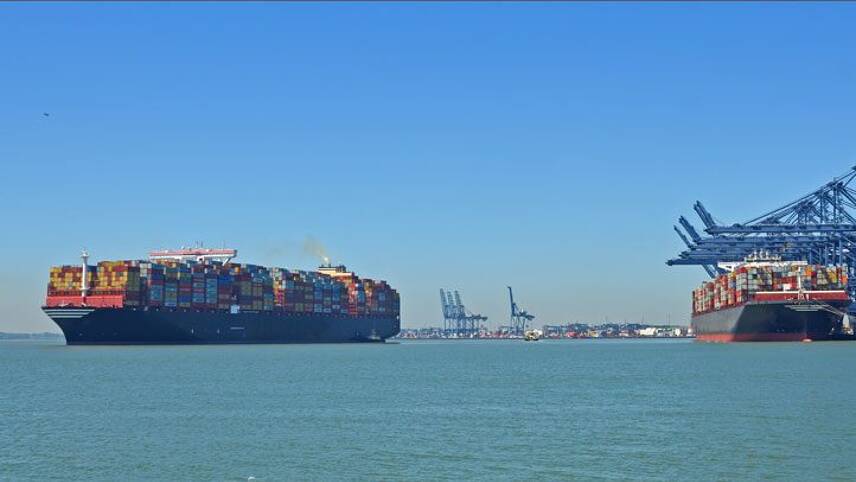Register for free and continue reading
Join our growing army of changemakers and get unlimited access to our premium content

Shipping accounts for 80% of global trade and 3% of greenhouse gas emissions
A new report has revealed that the shipping industry is falling behind in its efforts to address the climate crisis, with the majority of retailers relying on shipping also receiving failing grades for slow adoption of decarbonisation measures.
The Ship It Zero campaign’s first Shipping Decarbonisation Report Card assessed major retailers and shipping carriers based on their commitment to swift decarbonisation and zero-emission fuels for maritime transport.
Among the assessed retailers, Amazon received a grade of D, Home Depot, Lowe’s, and Walmart all earned an F for failing, and IKEA achieved a B+ as the highest-scoring retailer overall.
The report warns that many retailers are failing to act on Scope 3 emissions, which includes the shipping of goods and products.
The retailers examined in the study released 3.5 million metric tons of greenhouse gases (GHG) by importing goods solely into the US, for example, comparable to emissions from 400,000 households.
Assessed carrier lines included Mediterranean Shipping Company, Ocean Network Express, and Hyundai Merchant Marine, receiving scores of C. APM-Maersk achieved a B, while CMA CGM received a D.
The report suggests that the carriers remain reliant on ineffective solutions like liquefied natural gas (LNG) and scrubbers.
Ship It Zero’s Pacific environment lead Eric Leveridge said: “While the globe is burning, retailers and cargo carriers are doing little to address emissions from shipping their goods.
“Home Depot, Lowe’s, Walmart, Amazon and CMA CG, in particular, are failing to clean up their shipping pollution while Mediterranean Shipping Company, Ocean Network Express, Hyundai Merchant Marine are barely passing. Addressing the climate crisis is urgent and we have no time to waste, retailers and cargo carriers must act now.”
The report calls on companies such as Walmart, Home Depot, Amazon, Target, and IKEA to shift to entirely zero-emission cargo ships by 2030.
According to an International Council of Clean Transportation (ICCT) report, the worldwide shipping sector contributes 3% of total global climate emissions, surpassing the emissions from global air travel.
Roughly 90% of global trade moves via the sea, and as per the International Maritime Organisation (IMO), under current business-as-usual predictions, emissions are anticipated to increase by up to 50% compared to 2018 levels.
Last month, the IMO adopted an updated GHG strategy for shipping, setting 30% and 80% emissions reduction goals for 2030 and 2040. However, green groups asserted that the measures did not meet scientists’ deemed requirements for the shipping sector to effectively tackle climate change.


Please login or Register to leave a comment.